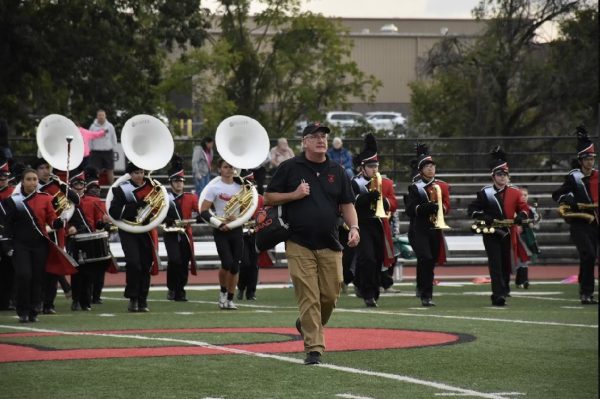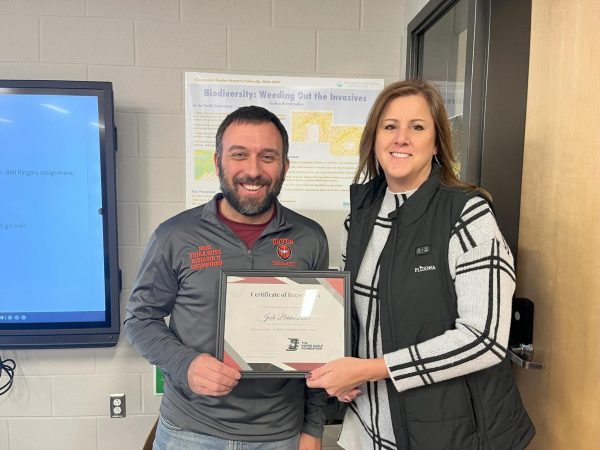Online schooling brings change to Dover Area High School
April 27, 2020
The Coronavirus, also known as Covid-19, has caused all schools to resort to online schooling. The students at Dover Area High School use the Schoology app to get their school work completed. Teachers give students new work every day in order to see if the student was “present” for that school day. Although online schooling is a clear alternative for our school during this pandemic, it has heavily impacted the people of Dover.
Online schooling has mostly been a trial and error concept because it’s a new way of learning. Many issues can come up while teachers and students are doing their work. These include no internet connection, a pdf not loading, Schoology crashing or simply the lack of knowledge of the platforms. Dover Area School District Superintendent Tracy Krum, uses her resources when an issue comes up. “I did a video for teachers, but I had no idea how to do the video or how to send it. Thank goodness for YouTube! I figured it out and did it.” Luckily, participants in online schooling have the resources needed to expand their learning, even when an unexpected situation comes up.
High School Principal Jennifer Fasick has been at the frontlines of figuring out online learning. Fasick and other staff members have to work nonstop to ensure everyone has equal access to online work. Fasick says, “some issues have been getting everyone the technology they need. We have been working with all families and their providers, creating hotspots at the schools to help.” In addition, Fasick is constantly working to improve and help families with online learning. She explains, “I am in Zoom meetings almost the whole day, making plans, discussing the process of online learning, on email well into the night answering questions and helping students, parents, and teachers.” Yet, Fasick worries that students’ participation has been drastically impacted by working from home.
For students, procrastination can be an issue. A change in scenery is one reason why it’s more common now. Junior Jonathan Firestone believes,“working from home takes more time because I lose focus when I’m at the place where I eat, sleep, and spend time with my family.” At home there are more distractions compared to the classroom. Normally, there is a teacher to keep students on track with their work. Now that students are working at home, teachers have to hope that their students will complete work and come to them with questions if they need help. Firestone states, “online can be easy at times. You are able to work with other students who have the same course but not the same class period.” For a lot of students, this could help them out if they don’t know anyone in their class or don’t feel comfortable confronting their teachers.
Teachers are also feeling the effects of teaching online. English teacher Barbara Lomenzo, is a very animated teacher and is invested in teaching literature. She said, “I’m less motivated honestly. There’s no passion. I love the classroom, all I do now is sit.” Lomenzo misses the human-interaction and physical learning experience that come with going to school that is limited while teaching online. Lomenzo summarized what every Dover teacher is feeling now by saying, “I learn from my kids too. I miss school, and I wish I could get that time back with those students.”
Every part of Dover is heavily affected by this drastic change in schooling. While everyone continues to adjust to this alternative learning style, they miss the personal experience of teaching and learning in the classroom.






